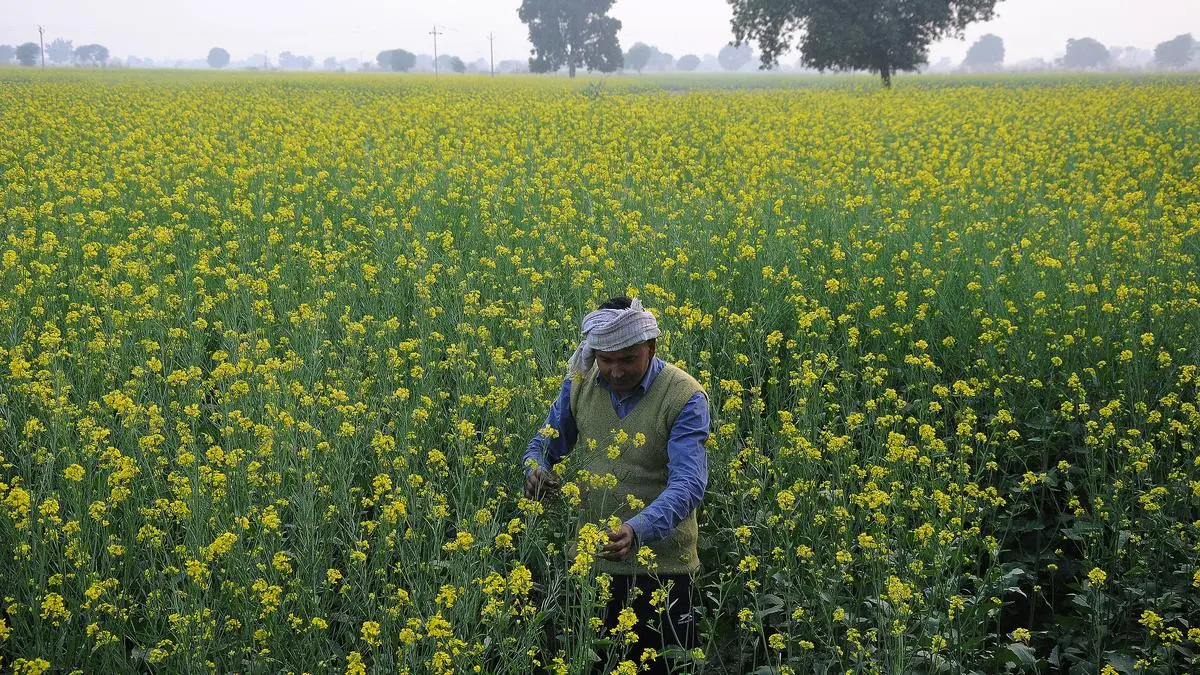
To make the MSP meaningful, the Government must ensure that market prices stay above the MSP levels and intervene promptly with procurement wherever necessary.
| Photo Credit:
KAMAL NARANG
Mangaluru
The Solvent Extractors’ Association of India (SEA) has asked the Government to strongly defend the MSP (minimum support price) for mandated crops with effective policy measures.
In his monthly letter to the SEA members, Sanjeev Asthana, President of SEA, congratulated the Government for announcing an increase in the MSP for all mandated rabi crops in the upcoming marketing season.
“This bold step, especially the significant hike for rapeseed signals a clear commitment to supporting oilseed farmers and boosting domestic production. However, while this move is commendable, it is crucial that the MSP is not only announced but also strongly defended through effective policy measures. Without adequate market support and timely procurement, farmers may struggle to realise these prices, limiting the benefit of the MSP hike,” he said.
To make the MSP meaningful, the Government must ensure that market prices stay above the MSP levels and intervene promptly with procurement wherever necessary. Only with such consistent backing will the MSP fulfil its intended purpose of improving farmer incomes and promoting sustainable oilseed cultivation, he said.
De-oiled rice bran
Thanking the Government for lifting ban on export of de-oiled ricebran (DORB), he said this will enable efficient utilisation of excess DORB stocks, enhance export opportunities, and strengthen India’s position as a reliable supplier in global feed markets. It will also benefit ricebran processors and farmers by improving realisations and supporting higher production of ricebran oil, which is a key import substitution product, he said.
This move will significantly benefit the edible oil and ricebran processing industry and contribute to the overall growth of India’s agro-based exports, he said.
Russian visit
Referring to SEA delegation’s recent visit to Russia, Asthana said the primary objectives of the tour were to assess the oil market landscape, build an exporter base, visit key processing plants and strengthen trade relations between Russia and India. The delegation visited key cities, including Moscow, Voronezh, Kaliningrad, and St Petersburg, where it held meetings with industry leaders such as GAP Resurs, EFKO Group, RusAgro, Sodrugestvo and Blago.
He said this study tour provided invaluable insights into the Russian vegetable oil industry and opened up new avenues for collaboration between India and Russia.
Rapeseed meal
He said the recent global trade shifts have opened a promising opportunity for India to expand rapeseed meal exports to China, especially as Chinese imports from Canada face duties and restrictions. SEA has urged the Government to engage with Chinese authorities to ease registration norms and other procedural barriers that currently limit Indian participation. Facilitating wider access will help reduce domestic stock pressures, support farmers, and strengthen India’s position as a reliable supplier in the global feed market, he said.
Policy issues
Mentioning that the association has been in continuous dialogue with the Government and regulatory authorities on key issues affecting the edible oil sector’s competitiveness and stability, he said the influx of refined oil imports from Nepal under SAFTA at zero duty has disrupted domestic refining and reduced value addition, underscoring the need for tighter Rules of Origin and effective monitoring.
Simultaneously, the restriction on refund of accumulated Input Tax Credit under the inverted duty structure has blocked substantial working capital, constraining liquidity and investment across the industry.
Further, the prolonged suspension of futures trading in commodities such as mustard seed, soybean and crude palm oil has weakened price discovery and risk management mechanisms, exposing the value chain to volatility.
He said SEA continues to engage with the ministries concerned seeking a timely resolution of the above issues. Together, these policy corrections are vital to strengthen India’s refining base, improve market efficiency and advance the goal of self-reliance in edible oils, he added.
Published on October 16, 2025
